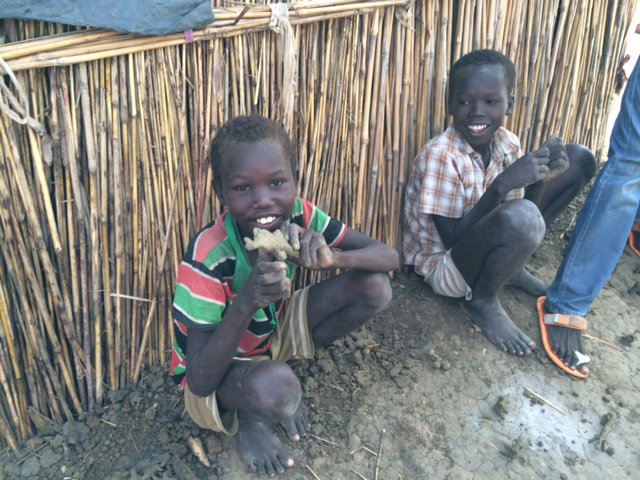
Editor's Note: This is an excerpt from an op-ed written by Enough Project Sudan and South Sudan Policy Consultant Justine Fleischner, who just returned from a trip to South Sudan. It originally appeared on The Daily Beast.
In the shade of a tangled mess of tarps and wood poles that barely form a functional shelter, a group of young boys play in the mud. They have constructed an entire army barracks complete with tanks, AK-47 machine guns, heavy artillery launches, and an impressive assortment of toy soldiers hand-shaped from the mass of mud in which they were sitting. One young boy cocked his mud rifle at me and asked for his picture to be taken. This was how these boys had come to pass the time in Bentiu—a strategic flashpoint in South Sudan’s civil war.
As I walked across the hot, swamp-like Protection of Civilians (POC) site, my two translators, young lanky men from the Nuer ethnic community, explained the peril they would face if they were to leave. “If we encounter government soldiers, they will shoot us dead,” one of them remarked, “and if we encounter opposition fighters, they will force us to join.” They live in humiliating conditions—knee-deep in mud when it rains, unable to go to school or work.
The severity of the situation is underscored by evidence that South Sudan may face famine on a scale the world has not seen since the 1980s.
On July 9, South Sudan will mark three years since independence, but any celebration will be bittersweet. This was supposed to be the first generation of children born free from civil war. Instead, that dream has been shattered. The United Nations Children’s Fund estimates nearly 9,000 children have been recruited or coerced to fight as soldiers.
Read the full op-ed on The Daily Beast.
Photo Credit: Justine Fleischner/Enough Project

